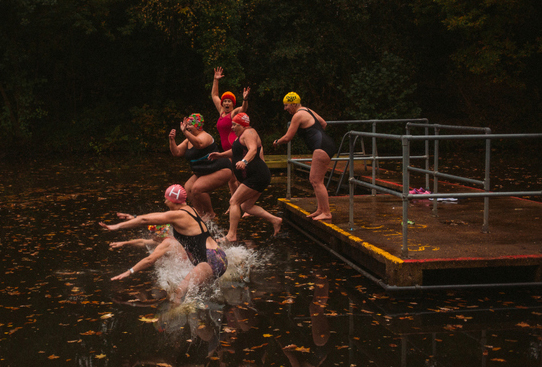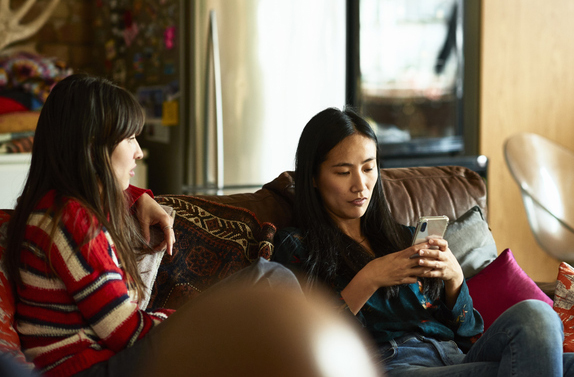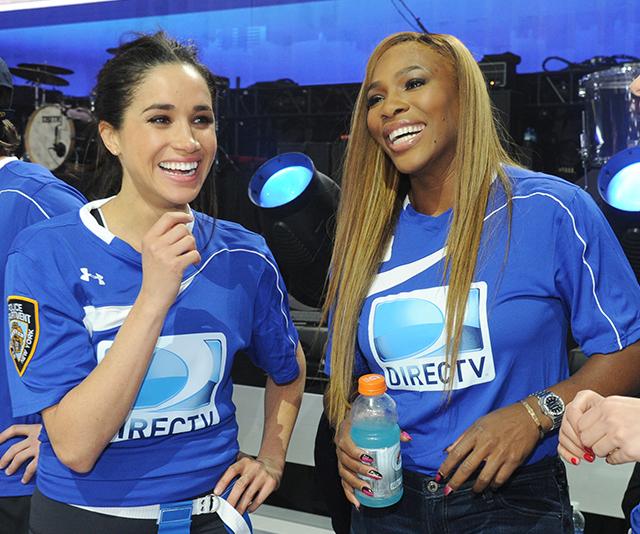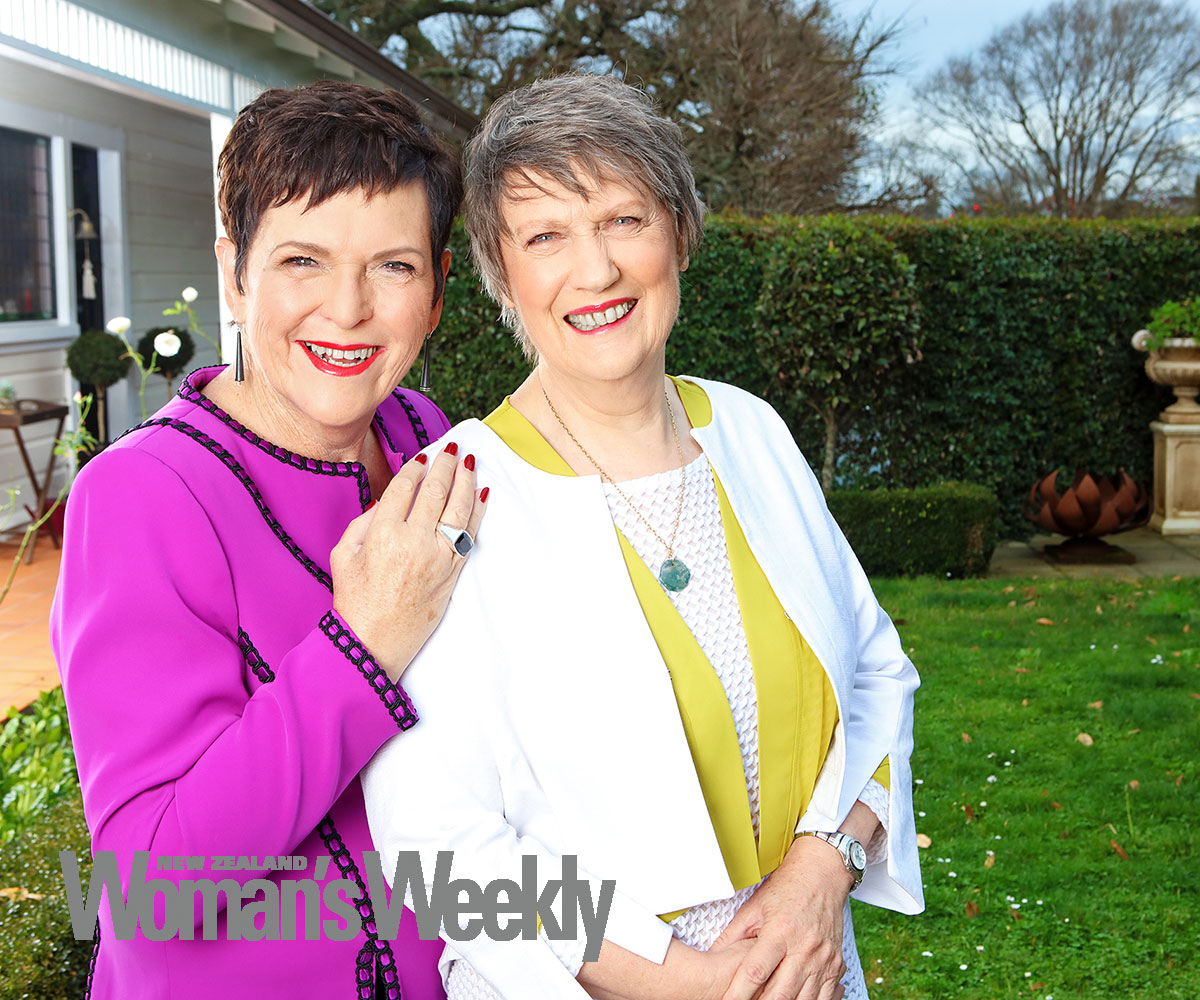In times when our health and wellbeing need a boost, diet, exercise and stress are some of the first things we tend to look at, but it’s about time friendship was added to the list.
One of the world’s largest studies on health and happiness, The Harvard Study of Development, found that in terms of happiness, close relationships trump money and fame, and are far better predictors of longevity than class, IQ or genes.
The study also found that loneliness is a risk factor as powerful as smoking and alcoholism for early death.
Clinical psychologist Mary Grogan is also a firm believer in the power of friendship.
“Close, healthy relationships keep us healthy, well and connected. I think finding your tribe is one of the most important things in life,” she says, and has some helpful advice on how to approach common challenges.

Forming meaningful connections
If you feel like your friendships are waning, there are plenty of ways to meet new people.
Introduce yourself to any unfamiliar faces at parties, join a sports team, gym or club, attend a meet-up group, or put your hand up for volunteering.
In Mary’s experience, meeting people is not the difficult part; it’s being open enough for a meaningful connection to form.
“I think a lot of us have done those things; we have joined the music group or the sports team, and found that even though we are all doing the same thing, there’s no one that we really click with.
“I think if you find yourself in that situation, it might be good to look at what you’re doing to keep yourself separate or distant from people. Be open and curious about how you might be holding yourself back or how your old patterns might be playing a part in the lack of relationships in your life.”
As a mother herself, she says this can be a common struggle for parents.
“You meet the same people every day at school pick-up, but the conversation might not ever get past bad weather and sick kids. It can be quite repetitive, so you have to open up and reveal something. Be vulnerable in some way to see how that is received and whether that can be heard and reflected back by the other person.”
True connections are the ones where we feel comfortable to be ourselves, but the catch is that in order to find these connections, we have to be ourselves first.
Exposing yourself to a new person is no easy feat, and the natural fear of rejection is a barrier to getting beyond small talk to forming a meaningful connection.
“A lot of people aren’t very good at being vulnerable, or vulnerable enough to let other people in. They’ve gotten used to being distant or aloof or hard to get to know,” Mary says, and explains that difficulties making friends are often the result of being hurt earlier in life.
“Subconsciously, they’ve just kind of blocked connection off. They can become really self-sufficient people, very good at doing things by themselves, so it might take a bit of time and it might feel quite hard to let people in, but if they’re willing, people can shift that.”
Finding the courage to share your preferences, humour, interests or opinions are simple ways to get the ball rolling.
On the other end of the spectrum, there are people who are extremely friendly and outgoing, who have no trouble meeting and talking to new people, but who have a tendency to try and please others or be what they think others want.
“They might come across as quite open and easygoing, but they don’t put themselves out there as having strong opinions or you don’t get a sense of who they really are, so it’s also quite hard to get to know those people.
“You keep looking for a sense of their opinion or how they feel about something and they duck and dive, because they’re so used to pleasing and agreeing with others. That’s another way of maintaining distance and likeability at the expense of authenticity.”

Rekindling a friendship
As we move through different ages and stages of life, it’s normal for some friendships to fade.
It’s a common experience to meet up with an old friend and feel that you simply no longer click in the same way that you used to.
On the other hand, if the fading of a meaningful friendship feels like a real loss, it doesn’t have to stay that way.
“The bit I always get people to think about is what was their contribution to the friendship fading, and can they figure out a different way of doing things, because unless they can do that, then surely the same pattern will play out again,” Mary says.
It could have been a case of losing touch over time, but sometimes, there is a deeper issue to be addressed that caused the division.
Taking quite a hard look at yourself can be uncomfortable, but is fundamental to the health of the relationship.
It’s then as simple as asking if they would be open to being friends again and talking about how to improve the friendship going forward.

How to know when a friendship is over
Just because you have been friends, doesn’t mean you have to stay friends.
If a friendship is no longer a positive influence in your life, knowing when to let go is important.
“Again, I think it starts with self-awareness of your own experience,” Mary says.
“Ask yourself when I am with this person, do I feel warm, connected and open? Or do I find myself shutting off, cringing, making myself small, or feeling like I’m walking on eggshells?” These can be good indicators that a friendship is taking a toll on your wellbeing.
“It’s actually really painful when you’ve had a good connection with someone and it changes for some reason,” Mary says.
She explains that in emotionally difficult times, people generally tend to engage in avoidance behaviours such as drinking, distracting with food or social media, or other methods of numbing out the pain.

To work through the issue, she suggests noticing and accepting your feelings rather than trying to numb or avoid them.
Allow yourself to feel the sadness and disappointment first, so that you’re able to consciously choose your next action instead of
doing something reactive, getting angry or saying something hurtful.
A slow fade out can be done by keeping busy, but if the person is persistent in trying to maintain the connection or you feel an explanation is needed, giving some gentle feedback face to face can be helpful.
“If you want to be really authentic in your life and for people to know how they have affected you, or you want to give them more information for their future relationships, you might ask them to meet for a coffee.”
Mary recommends just sticking to the facts, rather than using it as an opportunity to attack or create more drama. Explain to the friend what has happened, how it has made you feel, and that you simply don’t think it can be resolved for the friendship to continue.
In situations where the person is within your circle of friends, you might need to tread a bit more carefully.
Try to distance yourself emotionally from that person, while taking time to figure out what exactly about their behaviour is triggering your feelings.
“In relationships, we learn a lot about ourselves, and if someone is a friend to everyone else, but not to me, perhaps there is something about me and my background that has something to do with that. I get people to think about their own background, their own pattern with friendships and why this person might be winding them up – doing a lot of self-examination before shaming or blaming.
“Use your emotions as your guide. If you’re feeling something, that is generally a good indicator that something is going on. Then it’s time
for you to sit down, notice it, name it and figure it out, before jumping into any action steps. It’s that introspection step that I think people struggle with.
“People come in to see me saying, ‘I just want this person to change’ or ‘I just want them to understand me better.’ Actually, we need to start with your contribution and what’s going on for you, and the emotion is the indicator.”

Tips and takeaways
For meeting new people: Seek out unfamiliar faces at parties, join a sports team or club, find meet-up groups, or volunteer.
For meaningful connection: Have the courage to be vulnerable, open and expose your authentic self.
For shyness: Find a meet-up group specifically for introverts, or consider seeing a psychologist for social anxiety.
For rekindling faded friendships: Ask the other person if they would be interested in being friends again, and identify what made the friendship fade so you can improve.
For toxic friendships: Keep busy and let the connection fade over time, and if necessary, give the other person some gentle feedback on what has happened and how they have made you feel.
For personality clashes in a group: Remove yourself emotionally from that person, and try to figure out what exactly is triggering you. Is it something to do with your own background?
For tough times: If you’re upset, see your emotions as cues to self-reflect first, rather than a cue to react impulsively.
Sometimes relationships turn bad and veer into bullying. If you think you’re being bullied, visit bullyingfree.nz or wellplace.nz to find resources and support for yourself or others.




